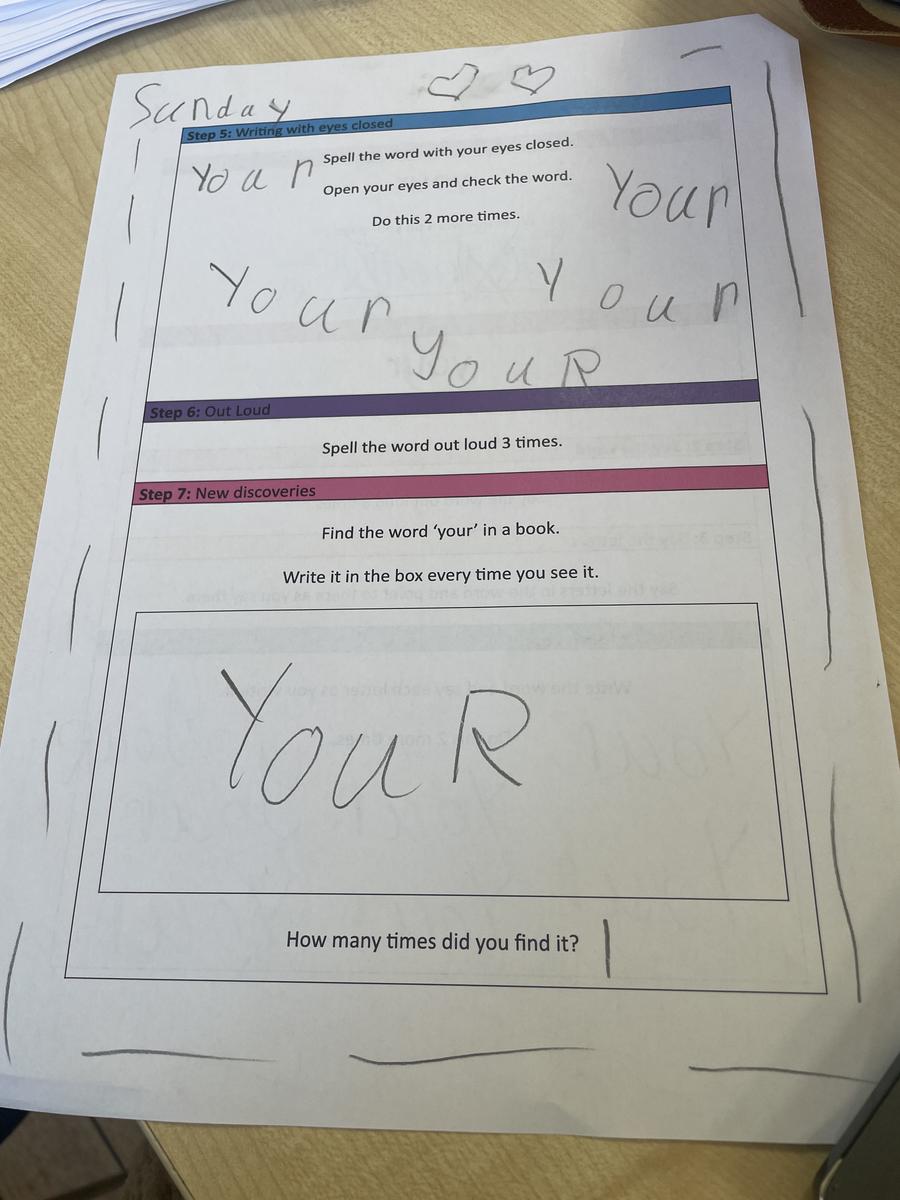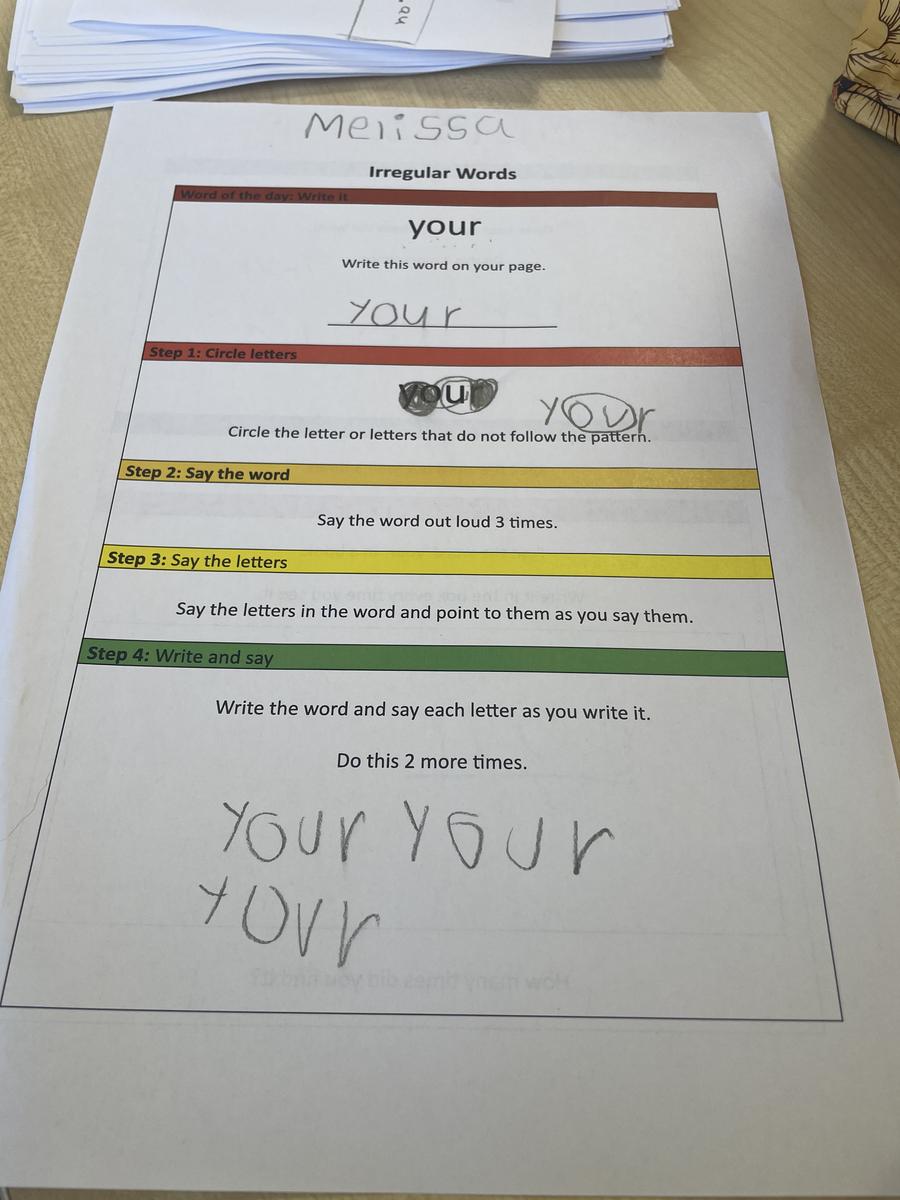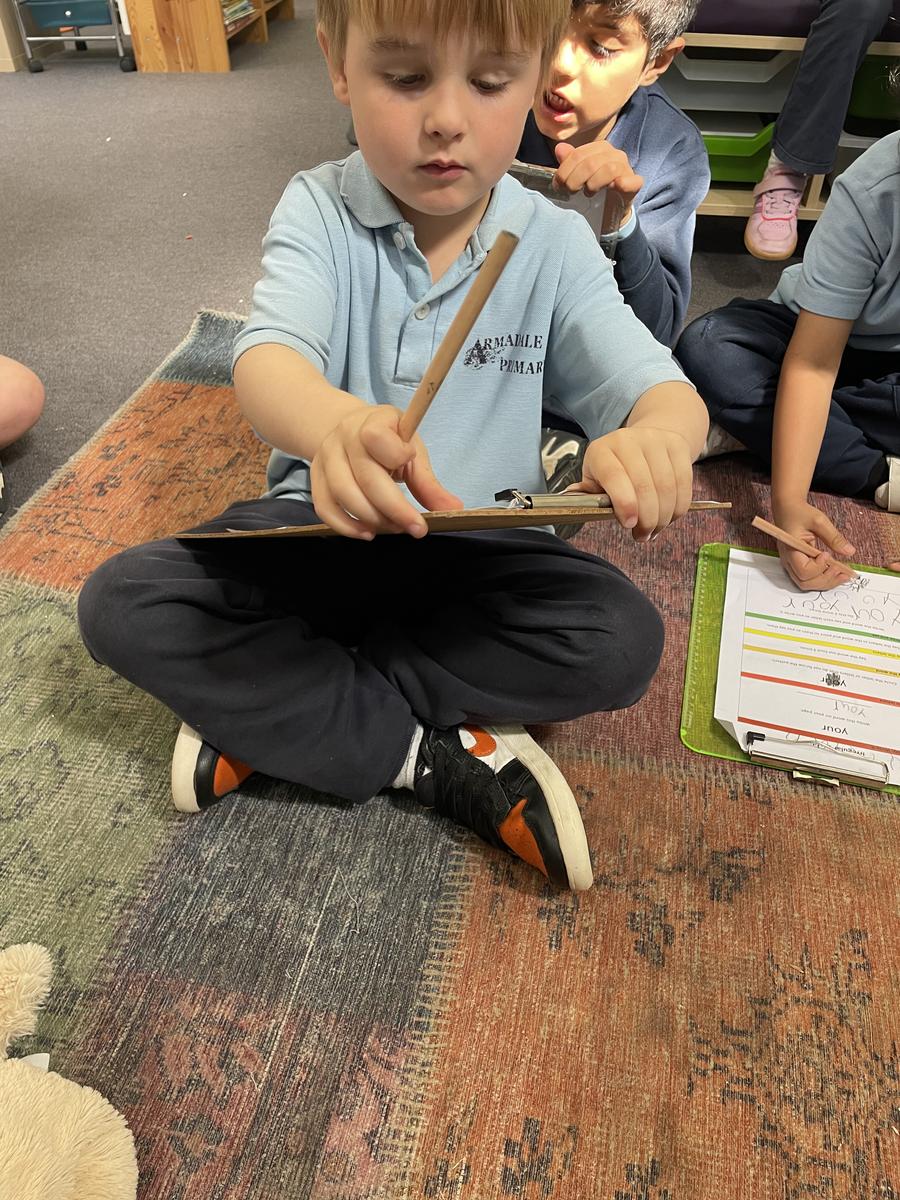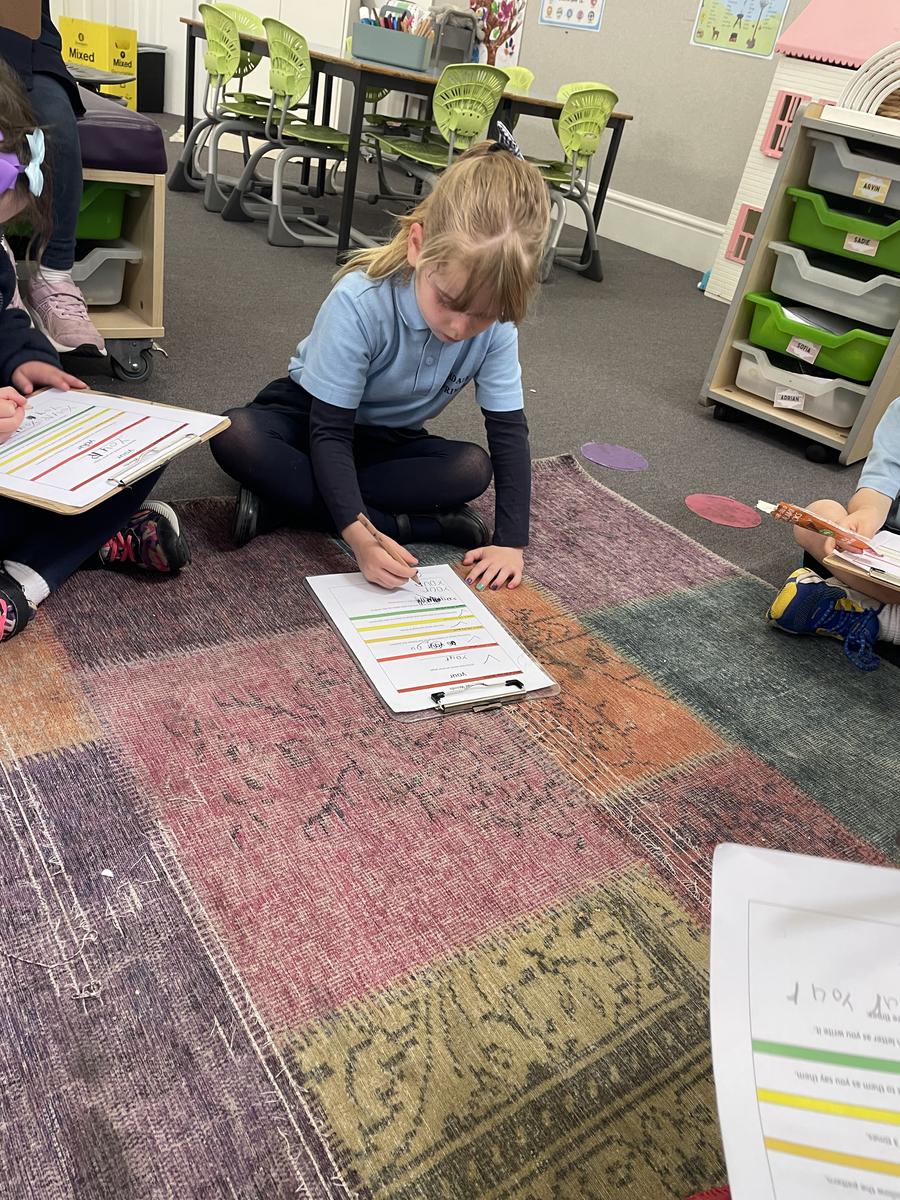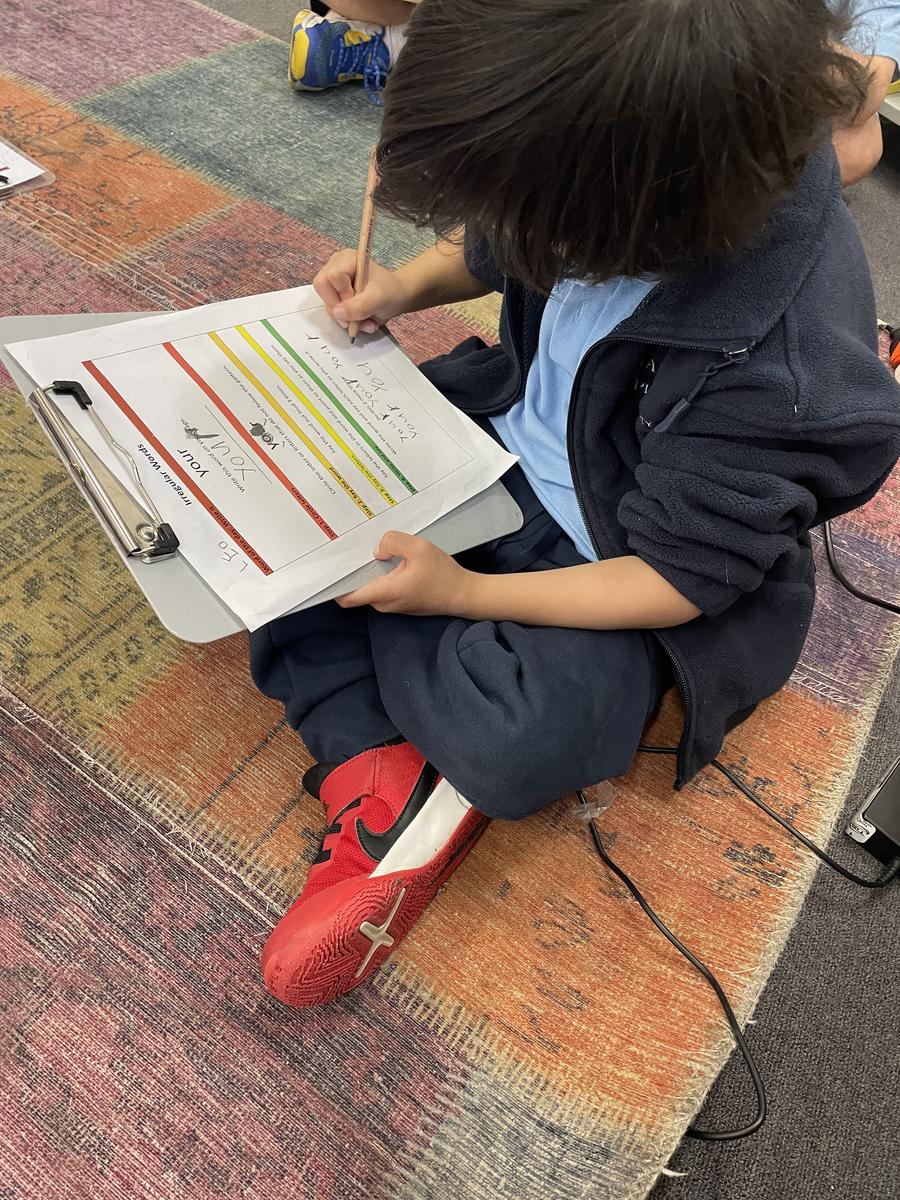Prep Bulletin

A Snapshot into Spelling
Learning Intention: To identify the sound or sounds in a word that don’t follow a pattern.
Learning Experience Overview
In Prep, we do guided spelling of irregular words once a week to complement our regular phonics-based lessons. While phonics gives children the tools to decode and spell most words by sound, irregular words need to be remembered as “whole words” because they don’t follow usual spelling patterns. This balance helps children build both strong decoding skills and a growing bank of words they can recognise and spell automatically. Together, these approaches support confident, fluent reading and writing.
In this lesson, students explore the irregular word your. When learning irregular words, we follow a step-by-step process to help students learn them by heart. These words are called “heart words” because they are tricky to spell and do not follow regular patterns.
To start the lesson, students write the word on their page, then follow the seven-step process to learn it thoroughly.
Step 1: Circle the letter or letters that do not follow the pattern.
For example, the word your is pronounced as /yaw/. The ‘our’ is pronounced as /aw/. Therefore, students circle the letters o and u.
Step 2: Say the word out loud 3 times.
Step 3: Say the letters in the word and point to them as you say them.
Step 4: Write the word and say each letter as you write it. Do this 3 times.
Step 5: Spell the word with your eyes closed. Do this 3 times.
Step 6: Spell the word out loud 3 times.
Step 7: Find the word ‘when’ in a book. Write it every time you see it.
Repetition in guided spelling helps children remember irregular words. Hearing, saying, and writing the words multiple times strengthens the connection between how they look, sound, and feel. This repeated practice stores the words in long-term memory, making them easier to recall and spell automatically,
In this learning experience, students will work towards:
- Identifying letters that don’t follow a spelling pattern
- Matching phonemes (sounds) with graphemes (letters)
- Memorising the spelling of the irregular word
Examples of students work
What you can do now to continue the learning at home from this experience:
- When reading books, see if your child can find the irregular word on the page.
- Discuss the meaning of the word and put it into context by reading the sentence it is in.
- Identify and discuss the letters that do not follow the regular spelling pattern.
- Your child can also practise the irregular word using their spelling activity grid when completing homework throughout the week.
Identify the irregular word ‘your’ in everyday life e.g. books, TV, in songs and signs.
Warm Regards,
Alyssa, Ruby and Julian
Prep Team
Alyssa.Thermos@education.vic.gov.au

